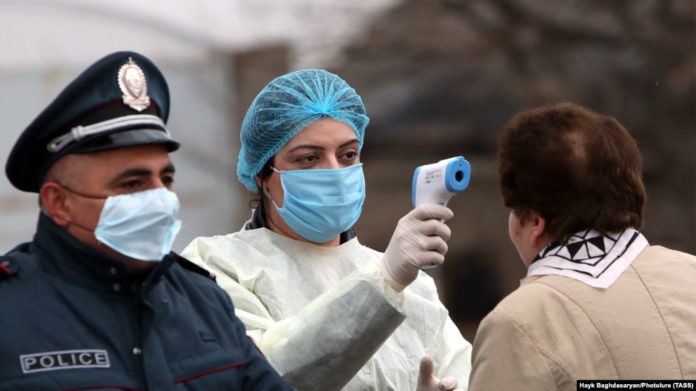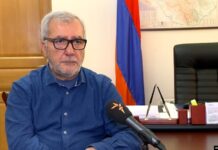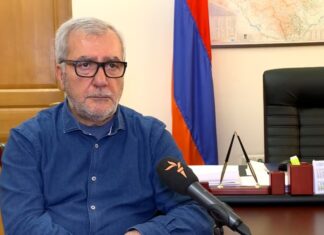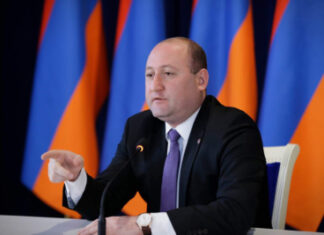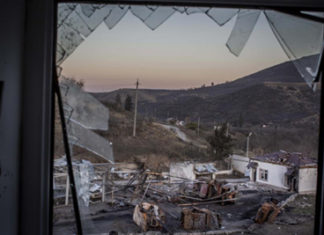YEREVAN (RFE/RL) — Armenia instituted a state of emergency in response to the rapidly spreading coronavirus outbreak, banning gatherings of more than 20 people and restricting media coverage of the disease.
The 28-day state of emergency was issued at a cabinet meeting on the afternoon of March 16. It heavily restricts any public gatherings including protests, religious events, concerts, weddings and funerals. It also forbade the entry of foreigners who had been in countries heavily affected by COVID-19 and gave the authorities broad power to implement other restrictions as needed.
There will also be sweeping restrictions on what media can report about the novel coronavirus. “Information about people suspected of carrying the virus or information about their examinations, the number of cases [of the disease], any content that can raise panic, will be banned,” said Justice Minister Rustam Badasyan. “Only information from official sources can be published, including on the internet, with a link to the source.”
As of March 16, Armenia had recorded 72 cases of coronavirus.
Pashinyan and other senior government officials on March 17 called on citizens not to buy more food and essentials than they need, assuring the public that Armenia has no shortage of supplies.

In a live broadcast on Facebook on the first full day of a 30-day state of emergency declared last night to slow and contain the further spread of the novel coronavirus (COVID-19), Pashinyan ascribed rising food prices to panic buying.



